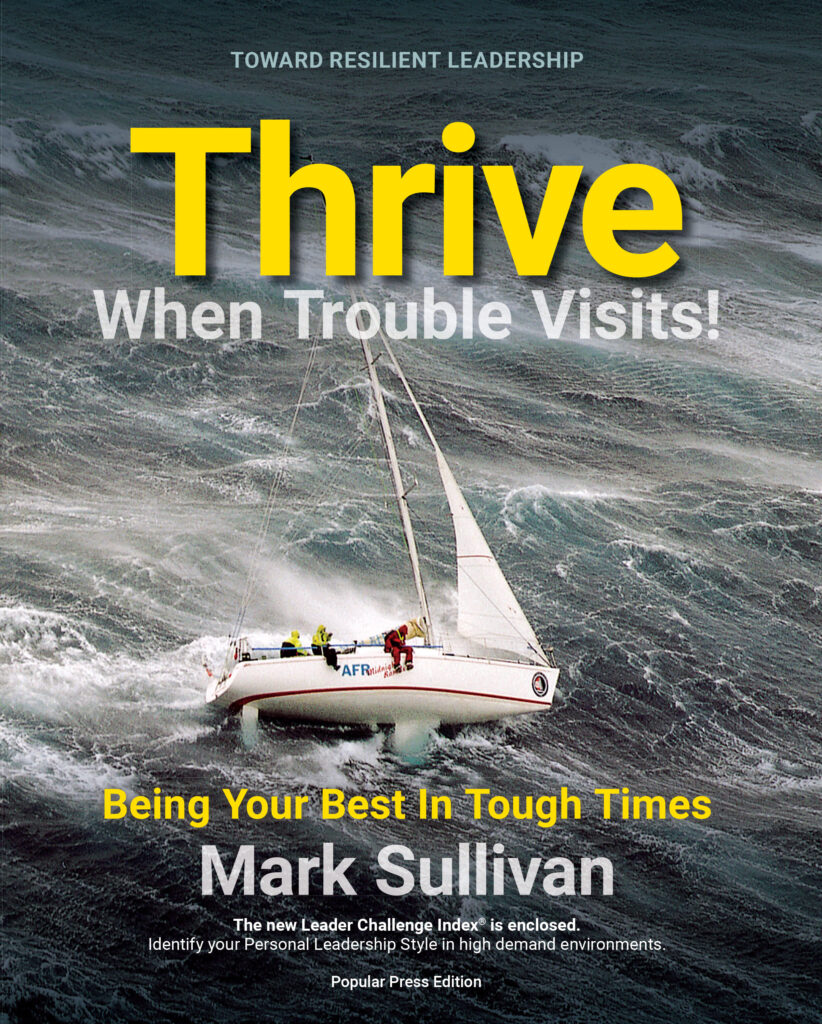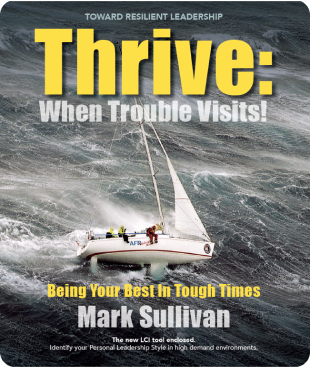Jim Tressel
Big-10 Head Football Coach, University President, Hall of Fame Recipient, Avid Reader and Youth Mentor
If you enjoyed this story, consider ordering Mark’s new book.
Permission Granted to Distribute by Signature Contributor
Sports, Media, and Entertainment Services
Jim Morris
Pro Ball Athlete, Terminal Illness – Recovery, Motivational Speaker, Family Man
b.1964
If you’ve seen Disney’s The Rookie, you already know about Jim Morris’ life-changing second shot at a career in baseball: unknown 35-year-old high school baseball coach tries out for the Tampa Bay Devil Rays and smokes 12 straight 98-mph fastballs over the plate, and by the end of the summer, he’s making his major league debut with the Rays and striking out Royce Clayton of the Texas Rangers in four pitches. He inspires the feel-good movie of 2002 and is played by none other than Dennis Quaid, and by the time the credits role, it appears Morris has realized his greatest dreams, patched up his rocky relationship with his father and earned the moon-eyed adoration of his entire hometown.
It’s easy for Morris to talk about The Rookie—at least the parts of it that are true—but movies only tell part of any story. And while they end, life doesn’t. After the credits rolled, Morris would face challenges even greater than pitching his way to the major leagues.
It’s been harder for him to talk about what came next.
“You’ve been through all of these battles,” he said. “You’ve been supported by some of the best fans in the world, and you’re letting this diagnosis kick your butt. What can you do?”
This is the story of Jim Morris that most people don’t know. It’s one that I find even more inspiring than the one Hollywood latched onto, because it’s the story you can probably relate to. It’s about stumbling. Falling. Lying there, flat on the floor, and finding the strength to pick yourself up.
It’s about something Morris’ grandfather always said: “If you do it, you own it.”
And about something Morris once told me: “When you’re going through the valley, you can’t complain about how you can’t see the peak. You’re not supposed to see the peak. You have to work to see the peak.”
We’ll start at the beginning. Morris was born in Texas, a Navy brat who spent a difficult childhood moving from city to city. His parents argued constantly, labeling everyone but themselves the problem, showing him how to do things the wrong way. At 15, he returned to Texas to live with his grandparents.
They showed him the right way.
His grandfather was an imposing man, a WWII veteran who owned an inventory store and drew customers from all over the country with his great charisma and unflinching honesty. Every week, he’d hold a lunch date with his wife, Morris’ grandmother, a church secretary and math wizard, the first woman in Texas to go to an all men’s college and graduate with a 4.0.
“My grandparents were absolutely the biggest influences in my life,” Morris said. “Respect was huge with them. My grandfather had such a commanding presence about him that you would simply agree if he told you what you were going to do. My grandmother would soothe you, calm you, wipe the dirt off of you and then tell you to get up again. They were fantastic people who had great respect for one another and who taught me to be a good man and a good person.”
Jim took his grandparents’ teachings to heart as he grew into a young man chasing his dreams. A baseball player from the age of 5, he switched to football because his high school didn’t have a baseball team and subsequently won a state championship. Baseball remained his first love, however, and he was drafted by the Milwaukee Brewers in 1983. A series of arm injuries eventually led to his release, and after four pitching appearances in the minor leagues he was released 1987.
He persisted and signed with the Chicago White Sox in 1989, but he simply couldn’t rise above the minor leagues.
Assuming that the majors were out of reach, Jim—now married and a father—retired from the sport and moved his family to west Texas, where he took a job as a high school physical science teacher and coach of the baseball team. Sensing that his players needed motivation, he accepted a challenge: if the team won the county championship—something it had never done—he would try out for a major league baseball team.
The team won the championship in 1999, a recruiter from the Tampa Bay Devil Rays let Jim try out in order to fulfill his promise, and the rest was movie history.
But the glory was short-lived. Morris pitched in a handful of games but never recorded a single win or loss. That following spring, his old arm injuries flared, and Morris was cut by the Rays. Soon he retired from baseball for good.
The decision was anything but peaceful.
Morris had begun to sense that something was deeply wrong.
“While I was in the national league, I could still throw a 100 mph pitch,” he recalled, “but I couldn’t assess a ball coming back at me. I couldn’t bunt. I couldn’t hit. I couldn’t make contact. Once I retired, my wife and I set off on a journey to determine what was wrong.”
Pain dominated his life. He couldn’t smell or taste. His wife traveled with him simply to help him button his shirts. Between 2001 and 2013, he underwent dozens of surgeries and grew dependent on the opiates doctors prescribed him for relief.
In 2013, a CAT scan finally delivered a diagnosis: Parkinson’s disease.
There are many different forms of the disease, and Morris’ was marked by chronic pain. More procedures followed, and Morris found himself sinking deeper into agony. He was trapped in a cycle of alcoholic and opiates—whatever it took to quiet the disease. He was angry and losing control.
And then he found a way out. He returned to the beliefs his grandparents instilled in him and leaned on the support he received from his friends and family. “I know that others are praying for me,” he said, “and just knowing that, knowing that I’m in their thoughts, makes me want to be a better person. To be a better person, I have to do things the right way.”
In 2016, he checked into a treatment center. He’s remained sober ever since.
“You have to tell yourself it’s just one more battle,” he said. “That it’s not different from any of your other failures, not different from having someone tell you that you can’t do something and then proving them wrong by going out and doing it. This is something you will overcome. Three days after I left the center, I was asked if I wanted a drink and I said, ‘You know what? I’m good.’ I found I could deal with pretty much anything.”
Morris would tap into what he learned and share it with others. He embarked on a career as a motivational speaker, slogging through the challenges of Parkinson’s disease until that, too, became something he conquered. By 2020, he posted a video of himself online looking lean and muscular, telling the camera that in three years he’d gone from relying on a cane to lifting weights and walking up to eight miles each day.
“We can overcome so much more than what we give ourselves credit for,” he said. “We throw in the towel too quickly. We walk away. We give up. We forget those dreams and we just quit. We’re not going to quit.”
We can learn a lot from The Rookie, and we can learn even more from Jim Morris. This is a story of true perseverance. Think of how many times he could have quit. He could have turned his back on his grandparents instead of embracing their invaluable lessons. He could have given up on baseball and never pitched in a major league game. He could have been a footnote in history—the sad story of a fall from grace.
But each time, Morris knew he would find a new peak. He relied on pure faith that it was there.
“If you have faith,” he said, “you believe in something bigger than yourself. You’re going to go through rough times, and how you react to them influences who you become. You can get up and say, ‘It’s time to go again because I’ve gotten one step closer to who I want to be.’ The people who fail are the people who stop trying.”
If you’ve stopped trying, are you ready to go again? As Morris would say: It’s time.

If you enjoyed this story, consider
nec gravida tempor dolor convallis. facilisis in nec gravida tempor dolor convallis.
facilisis in facilisis tempor libero, orci cursus nec orcial nec gravida tempor dolor convallis
2-way access:
- To purchase the THRIVE book separately, click “Buy Now”
- Want to purchase only the Toolkit? Click on the ‘Get Toolkit’ button to access it instantly


